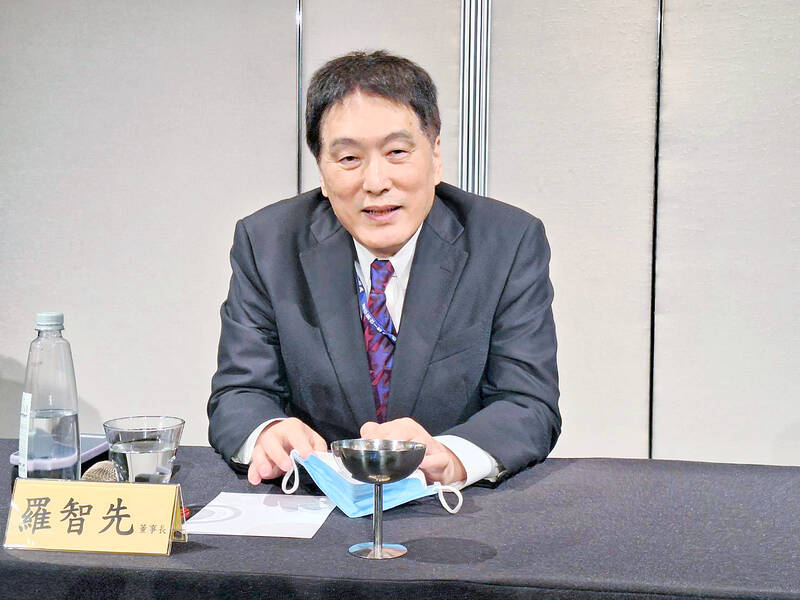The Fair Trade Commission (FTC) has approved a strategic partnership between Taiwan-based food conglomerate Uni-President Enterprises Corp (統一企業) and Hong Kong’s Yahoo Taiwan Holdings Ltd (雅虎資訊), Uni-President said in a statement on Wednesday.
Under the deal, Uni-President is to take an 80 percent stake in Yahoo’s e-commerce business in Taiwan, the company said.
Yahoo would retain the other 20 percent in the US$100 million e-commerce joint venture, which would continue to use Yahoo Taiwan’s e-commerce brand, it said.

Photo: CNA
The company’s remarks came after the FTC announced earlier on Wednesday that it had decided not to prohibit the deal by citing Article 13 of the Fair Trade Act (公平交易法).
In February, Uni-President announced that its subsidiary Cayman President Holdings Ltd spent US$25 million to acquire Yahoo Taiwan corporate bonds.
The company said it had put a wide range of products on Yahoo’s e-commerce platform for many years and that the two sides have forged close business ties.
Uni-President chairman Alex Lo (羅智先) said recently that the food conglomerate generated NT$580 billion (US$17.8 billion) in sales last year, mainly from physical stores, with only 0.5 percent of its sales coming from online stores.
This shows there is plenty of room for growth in the e-commerce sector, Lo said, adding that the company decided to form an alliance with Yahoo to gain a better understanding of e-commerce operations.
Asia Yahoo general manager Pete Wong (黃吉樂) said the joint venture is aimed at market expansion by using Yahoo’s experience in big data and digital operations, and building on Uni-President’s success at providing a comprehensive consumer experience through lifestyle essentials.

In Italy’s storied gold-making hubs, jewelers are reworking their designs to trim gold content as they race to blunt the effect of record prices and appeal to shoppers watching their budgets. Gold prices hit a record high on Thursday, surging near US$5,600 an ounce, more than double a year ago as geopolitical concerns and jitters over trade pushed investors toward the safe-haven asset. The rally is putting undue pressure on small artisans as they face mounting demands from customers, including international brands, to produce cheaper items, from signature pieces to wedding rings, according to interviews with four independent jewelers in Italy’s main

Japanese Prime Minister Sanae Takaichi has talked up the benefits of a weaker yen in a campaign speech, adopting a tone at odds with her finance ministry, which has refused to rule out any options to counter excessive foreign exchange volatility. Takaichi later softened her stance, saying she did not have a preference for the yen’s direction. “People say the weak yen is bad right now, but for export industries, it’s a major opportunity,” Takaichi said on Saturday at a rally for Liberal Democratic Party candidate Daishiro Yamagiwa in Kanagawa Prefecture ahead of a snap election on Sunday. “Whether it’s selling food or

CONCERNS: Tech companies investing in AI businesses that purchase their products have raised questions among investors that they are artificially propping up demand Nvidia Corp chief executive officer Jensen Huang (黃仁勳) on Saturday said that the company would be participating in OpenAI’s latest funding round, describing it as potentially “the largest investment we’ve ever made.” “We will invest a great deal of money,” Huang told reporters while visiting Taipei. “I believe in OpenAI. The work that they do is incredible. They’re one of the most consequential companies of our time.” Huang did not say exactly how much Nvidia might contribute, but described the investment as “huge.” “Let Sam announce how much he’s going to raise — it’s for him to decide,” Huang said, referring to OpenAI

The global server market is expected to grow 12.8 percent annually this year, with artificial intelligence (AI) servers projected to account for 16.5 percent, driven by continued investment in AI infrastructure by major cloud service providers (CSPs), market researcher TrendForce Corp (集邦科技) said yesterday. Global AI server shipments this year are expected to increase 28 percent year-on-year to more than 2.7 million units, driven by sustained demand from CSPs and government sovereign cloud projects, TrendForce analyst Frank Kung (龔明德) told the Taipei Times. Demand for GPU-based AI servers, including Nvidia Corp’s GB and Vera Rubin rack systems, is expected to remain high,